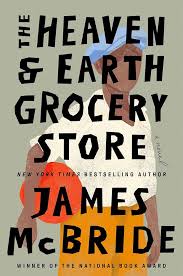Chapter 25: The Deal
byChapter 25: The Deal begins with a surprising request. Marvin Skrupskelis, a man of modest appearance and an unassuming past, approaches Isaac Moskovitz not as a labor agitator but as a concerned figure with insight into deeper corruption. During their drive along Broad Street, Marv reveals that he’s no stranger to the struggles of the working class. He grew up fixing shoes, listening to union talk, and observing how power moved quietly through cities like Philadelphia. As he unfolds the story of Gus Plitzka—a man entangled in debts to Nig Rosen and exploiting vulnerable neighborhoods—Isaac’s interest is piqued, especially when Chona’s name enters the conversation. Though Isaac initially resists getting involved, the mention of Chona transforms his detachment into purpose.
The issue at hand is water—a resource so essential yet manipulated by private interests. Gus Plitzka, who controls several lines feeding neighborhoods like Chicken Hill, has been rerouting access in exchange for bribes. His dealings risked drying out the wells that serviced marginalized communities, primarily Jewish and Black families. Isaac, though wary of overt confrontation, recognizes an opportunity. By pressuring Plitzka through Rosen’s network, they could force a change without implicating themselves. This type of subversive activism wasn’t uncommon in the early 20th century. When governments turned a blind eye to infrastructure in poorer districts, citizens—often through unions or religious alliances—took matters into their own hands, blending morality with maneuvering. Marv knew this, and Isaac began to understand the necessity of quiet resistance.
The conversation takes on weight when Marv shifts the topic to an institutionalized boy—Dodo—whom Chona once cared for deeply. His confinement, tied to an unjust accusation, symbolizes a larger issue of systemic abuse and racialized punishment. Marv’s suggestion is bold: leverage union workers from the railroad, trusted and organized, to orchestrate a discreet extraction during a supply delivery. Isaac bristles at the idea of breaking laws, but the moral calculus changes with Chona’s memory on the line. This is not just about one boy—it’s about righting a legacy wrong and restoring dignity where the system has failed. Isaac’s influence over the union network becomes the key. By deploying workers who owe their protections to him, he can move discreetly while maintaining plausible deniability.
Their agreement isn’t forged with loud promises, but through mutual understanding and shared grief. Marv, with his blunt observations and firm values, represents the grounded working class. Isaac, a man of culture and influence, embodies access to change—but only when reminded of what’s at stake. Together, they sketch a plan that treads the line between vigilantism and justice. Historically, such strategies echo the actions of early 20th-century Jewish-American coalitions that intervened in both local politics and civil rights matters. Their tactics, though quiet, often shaped outcomes where official policy failed. Isaac now steps into that lineage—not as a radical, but as a custodian of memory and a silent agent of justice.
As the plan forms, details come into focus. A truck from the railroad will deliver supplies to the institution. Among the crates, a hidden compartment will provide cover for Dodo once he’s slipped out. Timing must align with a shift change; a loyal worker will pose as a delivery driver. The institution’s guard will be distracted—coincidentally, a cousin of one of the union men owes Isaac a favor. Every step is risky, yet carefully designed. The goal is not just to extract Dodo but to avoid scrutiny entirely. This way, the narrative remains intact for the public. The boy vanishes, and no one looks too closely at how or why. That kind of precision requires both courage and coordination—traits found only where trust runs deep.
Isaac’s role is now set. He’ll move the pieces but stay behind the curtain. Marv, meanwhile, will act as the bridge between the union team and those on Chicken Hill who know the full story. The deal is not written on paper, but sealed through cultural codes—loyalty, grief, duty. For Isaac, it’s a turning point. No longer content with distance, he chooses involvement, though shrouded in secrecy. The chapter closes not with a handshake, but with silent acknowledgment: the machine is now in motion. In places where official justice often lags behind or never comes at all, this is how stories get rewritten—through whispers, risks, and quiet resolve that no one outside the community will ever truly understand.


